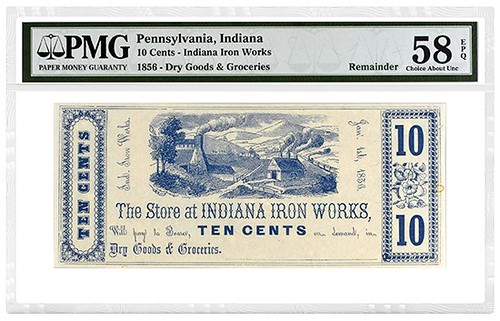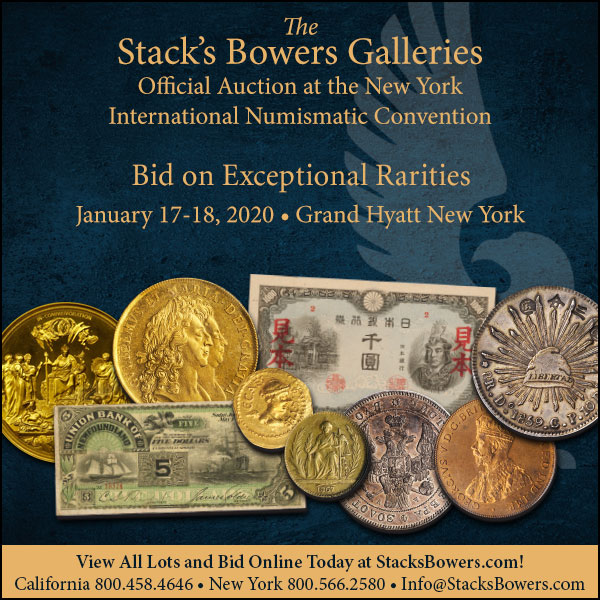
PREV ARTICLE
NEXT ARTICLE
FULL ISSUE
PREV FULL ISSUE
COMPANY SCRIPThe Paper Money Guaranty (PMG) blog published an uncredited article this month on company scrip. Here's an excerpt. -Editor  The promissory notes gave companies control over employees but also helped businesses and communities survive and thrive. In the late 19th century, the U.S. and several other countries around the world went through a rapid phase of industrialization known as the Second Industrial Revolution or the Technological Revolution. Inventions like the telegraph, the lightbulb and the compressed-air brake greatly changed how people worked. Wages increased overall and so did the quality of life for many people. However, the Technological Revolution also brought on new and dangerous working conditions and a continuation of unfair labor practices, holdovers from previous ages. Tycoons and magnates of the Industrial Revolution not only developed new methods of manufacturing but also sought new ways to control their labor force. One method was to issue company scrip. Company scrip consists of promissory notes issued by a business as wages to its employees. Unlike government-backed notes, company scrip can only be redeemed for company goods or company services. The scrip was usually printed as sheets on rice paper. Often, the vignettes were pulled from catalogs and the originality and complexity of the notes depended on budget and whether anti-counterfeiting measures were deemed necessary. At its peak, scrip was accepted by some 20,000 company stores across North America. Companies distributed scrip for a number of reasons. For one, it meant that employees gave a large portion, if not all, of their paycheck right back to their employer. A company could mark up prices on goods because employees had no other alternative — they couldn't take their scrip notes to any other stores. Company scrip also made it harder for employees to move, allowing the company to retain a workforce without raising wages or improving working conditions. Company scrip wasn't all bad. It also allowed for the growth of industries in areas that were cash-poor and otherwise would not have had the chance to develop. It was given to workers who otherwise would have had no access to credit in cash-strapped regions and allowed companies to survive or even grow during economic slumps. Company stores, by necessity, often became the social and economic epicenter of many mining and lumber towns. Because these industries were often in remote areas, cash was short and competition for supplies, and entertainment, were lacking. The goods you could buy at your company store ran the gamut from miners' lamps and safety shoes to bubble gum, candy and pop. Company stores also might include the town's barbershop, blacksmith and post office. To read the complete article, see:
 Wayne Homren, Editor The Numismatic Bibliomania Society is a non-profit organization promoting numismatic literature. See our web site at coinbooks.org. To submit items for publication in The E-Sylum, write to the Editor at this address: whomren@gmail.com To subscribe go to: https://my.binhost.com/lists/listinfo/esylum All Rights Reserved. NBS Home Page Contact the NBS webmaster 
|